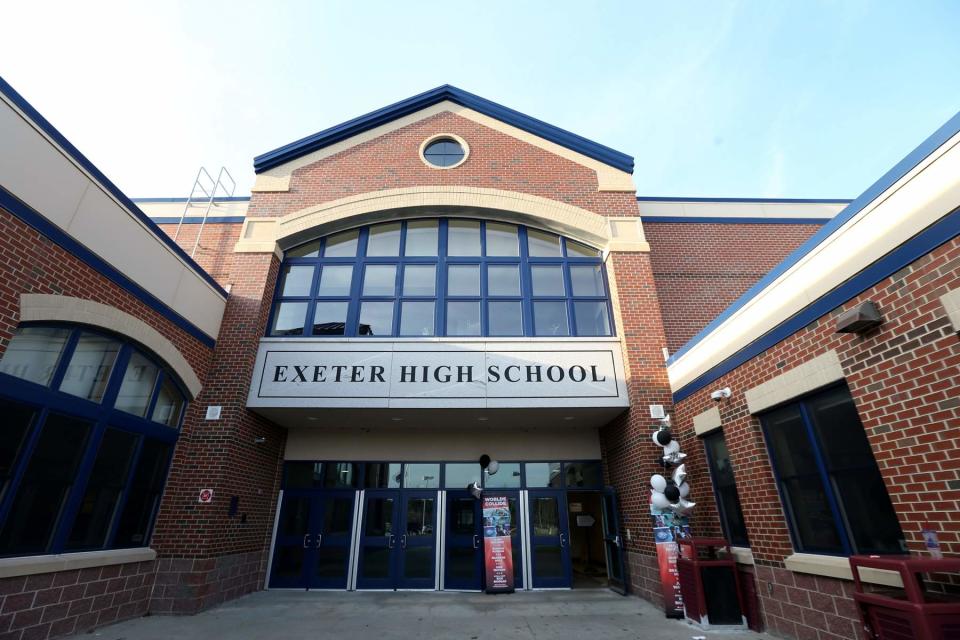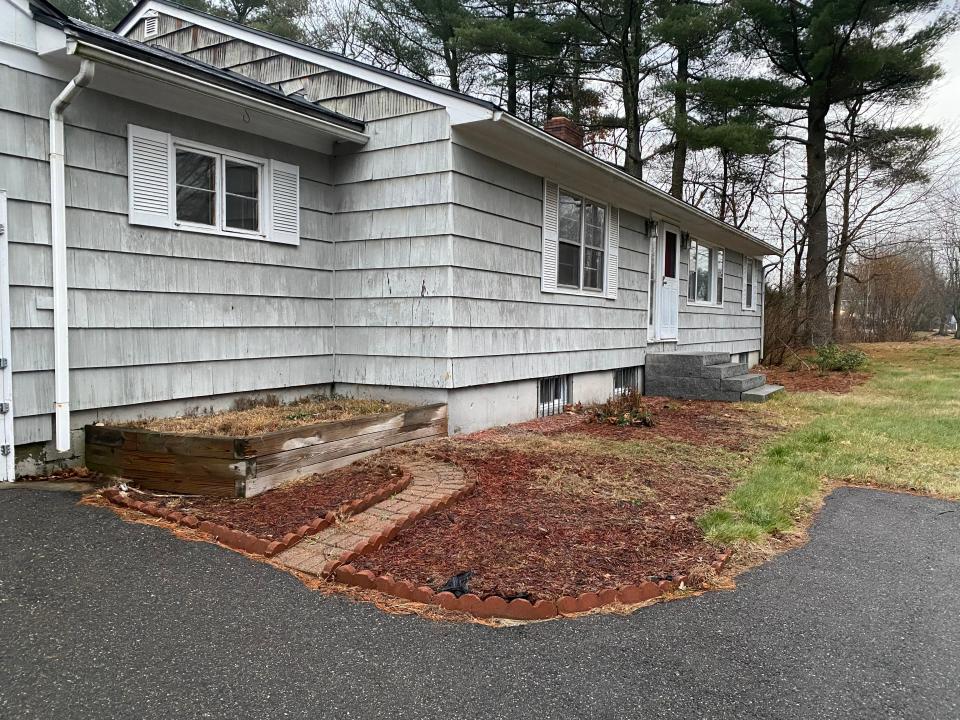SAU 16 should have followed Finland’s lead during COVID pandemic: Exeter Letters
SAU 16 should have followed Finland’s lead during COVID pandemic
To the Editor:
I applaud Mr. Bleicken for looking into Finland's excellent schools, and wish we had followed their example. I also agree with his research-backed comment that inequality - like coming from low-income households - can negatively impact achievement and test scores.
My children attended 10 different schools during my military career, including some where roughly 66% of students were on reduced/free meal plans.

Knowing about inequity, and the vast body of science and data showing healthy kids have almost zero risk from COVID, it was mind-boggling that SAU 16 extended remote-learning - the worst possible action based on published studies and actual risk factors - and masks, which the CDC (finally) and most studies show are ineffective. "Remote-learning" worsened existing inequities. Families that are food insecure often lack computers and home learning resources for kids. White-collar remote-workers worked from home (co-located with their kids); some set up "learning pods" with friends. Blue-collar workers, working outside the home, had to leave kids unsupervised to earn income for food, rent and utilities. Virtual learning, an unwarranted setback for all kids, was devastating to low-income households.
Finland reopened schools full-time in May 2020, and discouraged masks for elementary children. Finland had zero COVID deaths under age 20, and only one serious hospitalization. I visited 28 states and four countries in the past 20 months. Many countries and states followed the science about students and schools; their kids are now better off than ours academically, athletically, and mentally. In stark contrast to the scientific method, which requires considering all perspectives, SAU 16 followed political dogma instead of objective science, and condoned online censorship of dissenting voices. This has driven concerned parents, of all political affiliations, to seek new school board leadership.
Robin Tyner
Exeter
Column: Keep partisan politics out of our excellent Exeter public schools
Vote yes on Exeter’s Community Power Program
To the Editor:
The Exeter Community Power Aggregation Committee has created a Community Power Program for Exeter, supported unanimously by the Select Board and now before town voters as warrant Article 32.
Under state law RSA 53A, municipalities can aggregate or combine customer electric energy demand and purchase supplies as a larger group, thereby providing residents and businesses access to more stable rates and also options for renewable energy sources at lower costs.

This is an exciting and positive movement in meeting both climate and economic challenges, and has no additional costs for taxpayers or tax impact on the town.
To learn more about Community Power and Article 32 you can google “Community Power Aggregation, Exeter, NH” or go to www.exeternh.gov/bcc-pac. And be sure to come out on March 8 and vote yes on Article 32.
Joan Pratt
Exeter
Column: Keep Swasey Parkway in Exeter open to all
Exeter should rethink special education living and learning center
To the Editor:
“First in state” “special” living and learning center is a social setback that harms more than helps all students.
Shame, shame Exeter, we did this before in Laconia - separated people according to their IQ and functional ability. We learned from Laconia’s experiment that persons who function differently than their neurotypical peers do better with those peers, not in a separated environment.

What does a segregated building teach? Those people are different. They need to be treated differently. They need to be isolated. They can’t be controlled. They need special housing, the list can go on. Who does that help? No one.
First of its kind in NH: Exeter High to create special education living and learning center
Exeter, is that the diversity, equity, and justice you're teaching your student body?
Your “facility” is a modern-day word for prepping for institutionalized living, the segregated “group home.” That style of living is slowly being replaced with socially conscious, healthy living that is universally designed. You’re behind the times Exeter.
We don’t want to be “Lost in Exeter” and left behind.
In 1991 the Laconia State School, formerly known as the NH School for the feeble-minded, was closed permanently. The closure of this institution and return of people to be educated, cared for, and serviced within their home communities, identified N.H. as the first state to get rid of the barbaric treatment of people in institutions and instead made a shift to educate, support, include, and value people with disabilities.
Nothing replicates real life. You can’t create a mock transition program, especially one that is not evidence-based on solid research and data. All success and evidence point to persons with challenges do best with typical peers. They want to be in the community. They want to have meaning. They want real relationships. They want to feel accomplished, respected, and valued. They want to be engaged with the typical.
Exeter doesn't need to flashback to “Romper Room.” What are you teaching your whole student body, that this “special” place is a lab for the feeble-minded and physically impaired? This model perpetuates the cycle of oppression, teaches segregation, isolation, and fear of what should be a normal part of society.
This is an “ism”, not racism…. It’s Ableism! It’s time this population gets heard and this lack of competence stopped.
Exeter continues to stunt their whole student body growth and crippling societal development by segregating disabled students. This is a rash set back for the state. This is not educating our young students, it is creating division. It perpetuates a cycle that promotes bullying and abuse to those who are disadvantaged.
Just because the superintendent and the director of student services support this venture doesn’t mean it’s a “good” move.
Laconia State School was once considered the “best” way by a prominent doctor educated at Dartmouth.
Transition services are required to begin at age 14 in the state of N.H., earlier if the team deems necessary and supported in home by a care provider. All special education students regardless of the disability are eligible for services with this model. Social situations need to be fostered every day in a natural environment, with typical peers in real-life situations, not in a mock living room or segregated environment.
Wake up Exeter. Disability can affect you and your family at any time. How would you want to be cared for, viewed, treated? Let’s keep moving forward Exeter and really listen to those uncommon voices that desire the same as everyone else.
For more information on Laconia State School, view Lost in Laconia on YouTube. https://www.youtube.com/watch?v=UesOm2HTm2I.
Lisa Jollimois
Exeter
Ted Lloyd for SAU 16 Exeter Region Cooperative School Board
To the Editor:
My name is Ted Lloyd. Since moving to New Hampshire in 2004, I’ve made my home in East Kingston along with my wife Gisela. I am running for the remaining term of the East Kingston seat on the SAU 16 Exeter Region Cooperative School Board, which I’ve been holding since last September under an interim appointment.
I’ve always believed in service to the community and I’ve held a number of public offices since my retirement from the Gillette Company: I have served on the Salary Review and New Library Building committees; I’ve been elected as a Library Trustee, serving ten years, and I’m currently a Trustee of the Trust Funds, a position I’ve held since 2012.
I volunteered for the appointment to the Co-op School Board because I feel that the Exeter school system has lost its way: Academic excellence, once among the best in the state, has declined dramatically; yet the cost per pupil has risen steadily. Parents and other taxpayers feel like they’ve lost control of their children’s education.
Please vote for me and other School Board candidates like me who will work to return the focus on academic excellence at a reasonable cost. I will be on the ballot in all six SAU 16 towns (Exeter, Stratham, Brentwood, East Kingston, Kensington and Newfields). With you, we can succeed in taking back control of our educational system. I greatly appreciate your support!
Ted Lloyd
East Kingston
Vote yes for local control of electricity costs
To the Editor:
Article 32 on the March 2022 Exeter town warrant, to adopt and implement a Community Power Aggregation program, is an exciting opportunity for Exeter town residents and businesses, giving us the opportunity to increase renewable energy consumption, reduce electric energy created by fossil fuels, and save money.

N.H. is suffering from a lack of leadership on climate change issues at the state level. Our state is lagging all other New England states in reducing our impact in the climate crisis. It is, therefore, imperative that action and leadership come from the local level. The Community Power Plan gives Exeter the ability to act now and increase our renewable energy usage.
Sticker shock: Why are my electrical and heating bills so high? NH utilities explain.
One of the clear benefits of aggregating our electric energy purchases as a town is local control of electricity costs. Having advantageous rates locked in for several years by a Community Power Plan would avoid the current roller coaster electricity rates residents and businesses see twice a year. Leveraging the total electric usage of town residents and businesses will give the ability to negotiate better rates and give choices in the percentage of renewable energy in the supply. I see no downside to this program at all, but should someone not want to take part, that choice is available, too.
This is also an equity opportunity for our town. Currently residents can choose a higher level of renewable energy in their electric supply, or they can install solar power for their home, if appropriate. But these choices come at a financial cost. This added cost is not accessible to all homeowners. The Community Power Plan will give all Exeter homeowners the opportunity to use more renewable energy and less energy generated by fossil fuels – at the same or lower rate than they are currently paying.
These are reasons why I will vote yes on Article 32 to approve the Community Power Aggregation program, and I encourage all other voters to vote yes as well.
Sherri Nixon
Exeter
Transitioning from nuclear power
To the Editor:
In the Exeter News-Letter on Feb 4, Irving Glater lamented that in coming decades nuclear power plants will be shut down and not replaced. He believes wind and solar will be unable to make up for the loss of energy production, and he blames "eco-freaks" for the demise of nuclear.
But he is wrong. While it is true that those who are concerned with public safety and the environment have kept pressure on regulators, the real reason for the demise of nuclear power is the financial woes that have resulted from the high expense of maintaining reactors and from competition - the fact that the cost of wind and solar keeps dropping. Offshore wind alone is set to exceed nuclear in New England in the next few years. For more on this, go to the website of the Seacoast Anti-Pollution League (sapinh.org).
Mr. Glater's woeful tone leads me to wonder if he thinks nuclear plants can be kept going indefinitely. But just because a plant might run for 40 or 50 years doesn't mean it can operate safely for 80 years, any more than a man in his 90's can expect to live to 120. Unfortunately, as plants and people age, the likelihood of failures increases - and in the case of nuclear power, this can be catastrophic, as seen at Chernobyl and Fukushima.
The steel of reactor pressure vessels becomes "embrittled" through neutron bombardment, and heat-exchanging tubes corrode and leak to the point that cooling systems must be replaced, costing hundreds of millions and often resulting in plant closure instead. Meanwhile, state and federal governments have paid billions in bailouts for nuclear plants, ultimately recouped from consumers through taxes or energy bills.
And all of this is on top of the ongoing release of ionizing radiation (see NRC Radioactive Effluent Release and Radiological Environmental Reports) and problems with storing radioactive waste, which have cost billions and are still not solved. The Biological Effects of Ionizing Radiation Report concludes that "there is no safe level of ionizing radiation" - any level of exposure can negatively impact living tissue.
Our nuclear plant at Seabrook was licensed in 1990 for 40 years (to 2030), and this has been extended to 2050, which would be longer than any plant in the world has ever operated. Dozens of nuclear plants in the U.S. have been shut down in less than 30 years for cooling system problems, radiation leaks and other malfunctions. Half of U.S. plants have lasted less than 40 years. The plant at Three Mile Island, near where I grew up, was shut down after 4 months following a partial meltdown.
The finance sector is not funding more nuclear plants because they know it is a losing proposition. Focused on near-term profits, investors tend to defer needed maintenance, whether in power plants or bridges or hi-rise condos on Florida beaches. Politicians often talk about repairing infrastructure, but few do anything about it - President Biden being a notable exception.
The solution, in terms of public safety and energy, is not to operate facilities beyond their safe life, but to pursue clean and reliable alternatives such as solar, wind and tidal – and other technologies of the future. Making up for the loss of nuclear is not the issue - the challenge is to offset the use of fossil fuels (coal, oil and gas).
This is one of the things that would be addressed by President Biden's Build Back Better plan - if Republicans would just allow it to pass through Congress.
Don Nolte
Exeter
This article originally appeared on Portsmouth Herald: SAU 16 should have followed Finland’s lead during COVID pandemic: Exeter NH Letters

